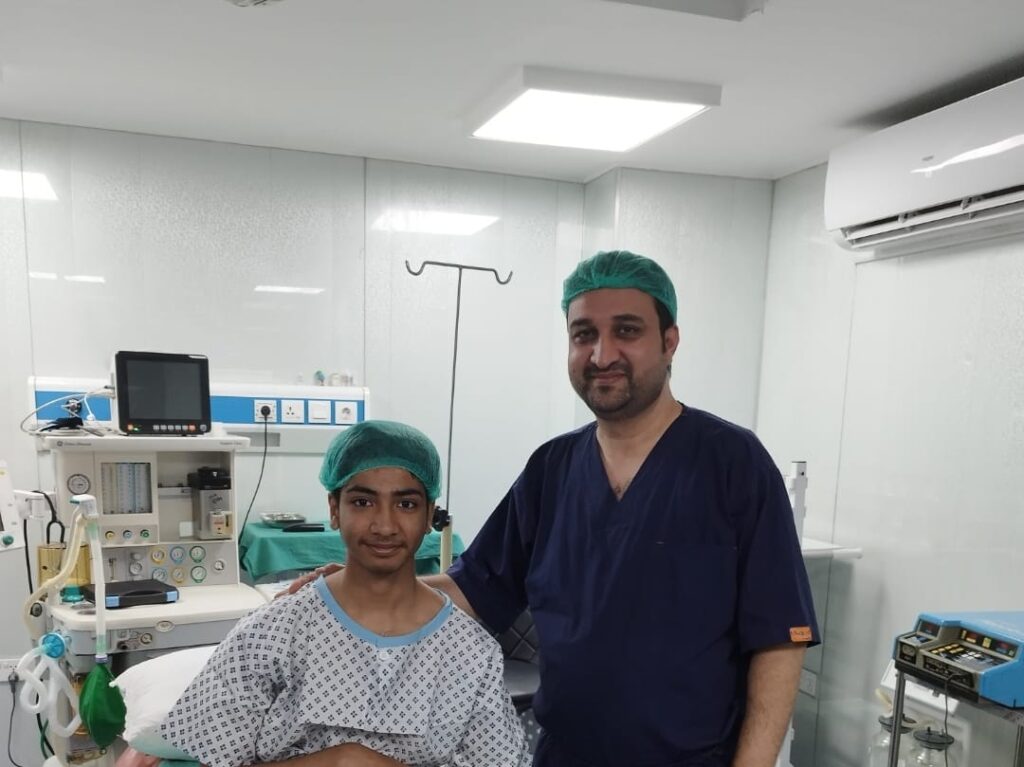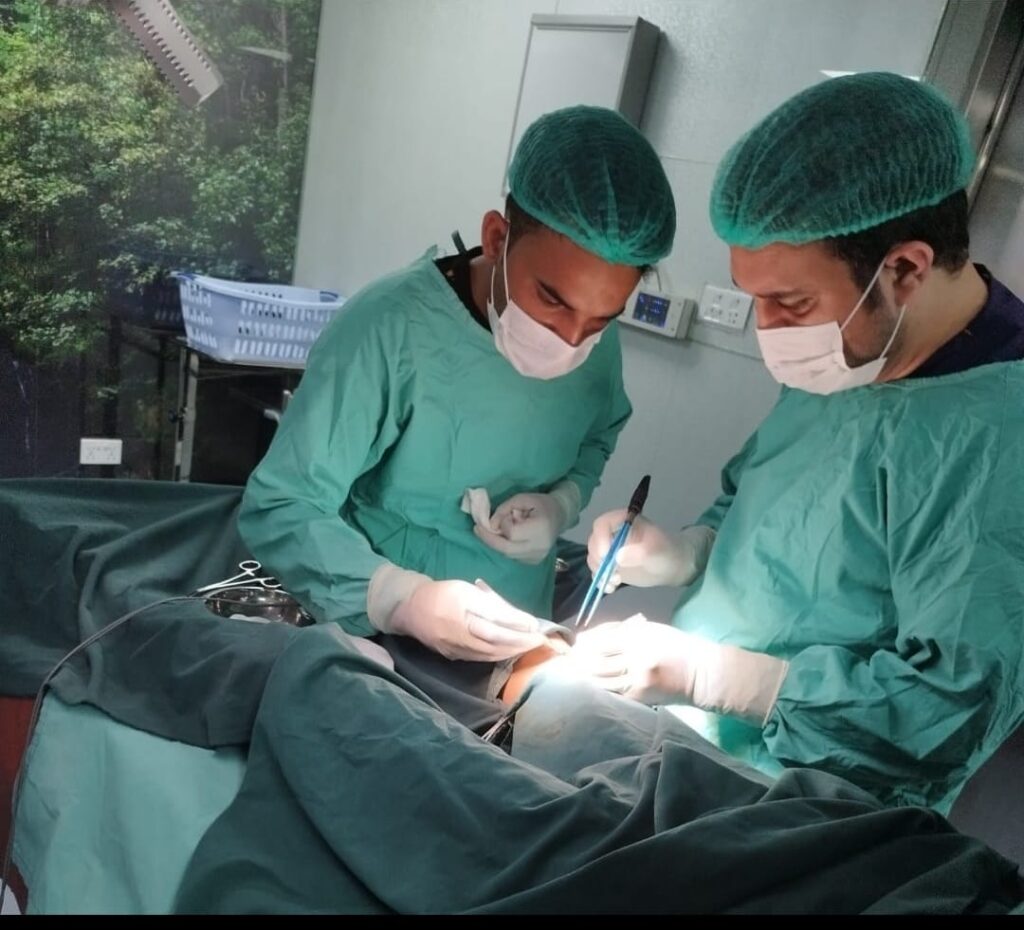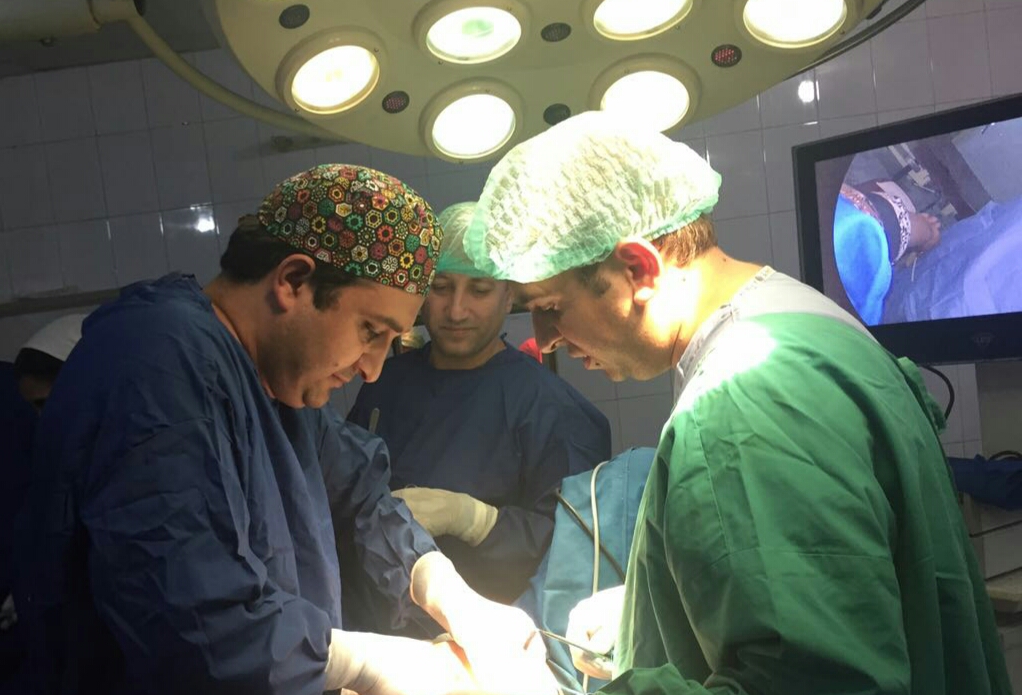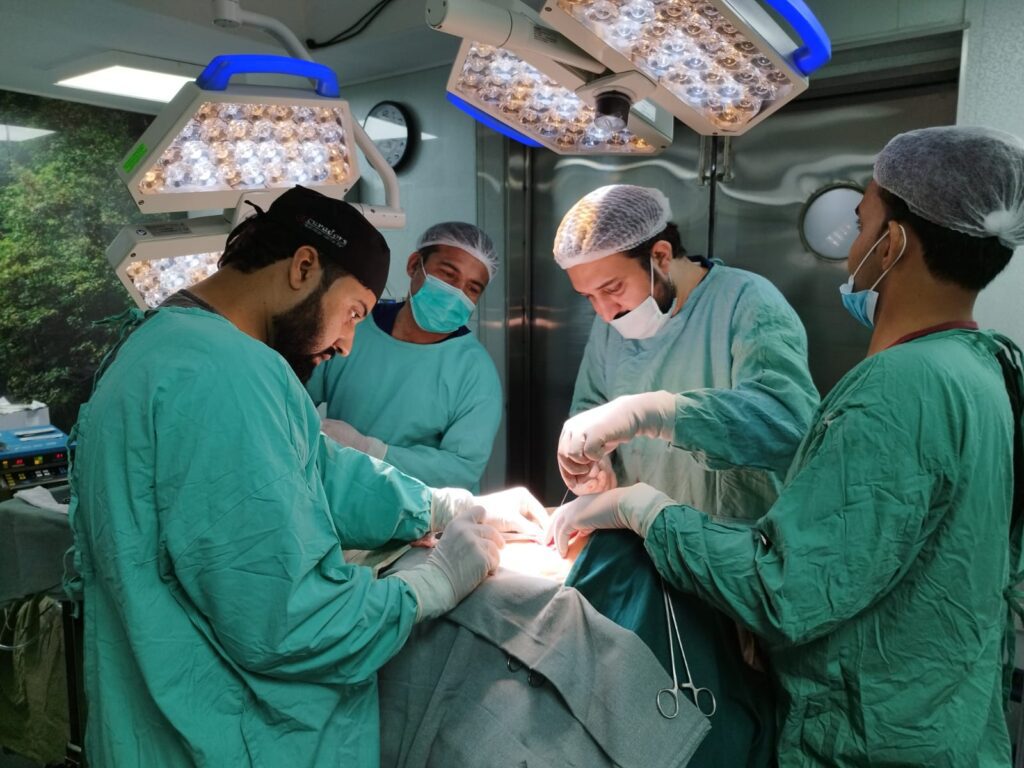- contact@laparoscopyadvice.com
- General Practice Hospital, G-9/2 Islamabad
- Mon - Fri: 10:00 am - 7:00 pm
Visiting Hours
| Mon - Fri: | 8:00 am - 8:00 pm |
| Saturday: | 9:00 am - 6:00 pm |
| Sunday: | 9:00 am - 6:00 pm |
Gallery Posts






| Mon - Fri: | 8:00 am - 8:00 pm |
| Saturday: | 9:00 am - 6:00 pm |
| Sunday: | 9:00 am - 6:00 pm |







Band ligation is a minimally invasive procedure commonly used to treat second and third-degree hemorrhoids, also known as piles. This procedure aims to reduce the size of hemorrhoids and alleviate symptoms such as bleeding, pain, and discomfort. It involves placing a rubber band around the base of the hemorrhoid to cut off its blood supply, leading to its eventual shrinkage and resolution.
Band ligation is performed as an outpatient procedure and does not typically require anesthesia. It is often recommended for patients who have failed to respond to conservative treatments such as dietary modifications, topical medications, and lifestyle changes.
Technique: During band ligation, a specialized instrument called a ligator is used to place a small rubber band around the base of the hemorrhoid. This effectively cuts off the blood supply to the hemorrhoid, causing it to shrink and eventually fall off within a few days.
Degree of Hemorrhoids: Band ligation is most commonly used to treat second and third-degree hemorrhoids, which are characterized by prolapse (protrusion) during bowel movements and may require manual reduction.
Safety and Efficacy: Band ligation is considered a safe and effective treatment for hemorrhoids, with high success rates and low complication rates. It is associated with minimal discomfort and a short recovery period.
Chronic Constipation or Straining: Hemorrhoids are often associated with chronic constipation or straining during bowel movements, which can increase pressure on the veins in the rectal area and contribute to their development.
Pregnancy and Childbirth: Pregnancy and childbirth can also increase the risk of developing hemorrhoids due to the increased pressure on the pelvic veins and hormonal changes that affect the blood vessels.
Rectal Bleeding: Hemorrhoids can cause bright red blood in the stool or on toilet paper after bowel movements.
Pain and Discomfort: Hemorrhoids may be accompanied by pain, itching, swelling, or discomfort in the anal region.
Prolapse: Second and third-degree hemorrhoids may protrude from the anus during bowel movements and may require manual reduction.



Band Ligation: Band ligation is a common treatment option for second and third-degree hemorrhoids and is performed in the doctor’s office without the need for anesthesia.
Sclerotherapy: Sclerotherapy involves injecting a chemical solution into the hemorrhoid to shrink it and reduce symptoms.
Hemorrhoidectomy: Surgical removal of hemorrhoids may be recommended for severe or persistent cases that do not respond to other treatments.
High-Fiber Diet: Consuming a diet rich in fiber can help promote regular bowel movements and prevent constipation, reducing the risk of hemorrhoids.
Hydration: Staying well-hydrated by drinking plenty of water can soften stools and make them easier to pass, reducing strain on the rectal area.
Healthy Bowel Habits: Avoiding prolonged straining during bowel movements and practicing good toileting habits can help prevent the development of hemorrhoids.
| Mon - Fri: | 9:00 am - 7:00 pm |
| Saturday - Sunday: | Off |
Copyright 2023 Adil's Laparoscopy World | Powered by Dynaamx